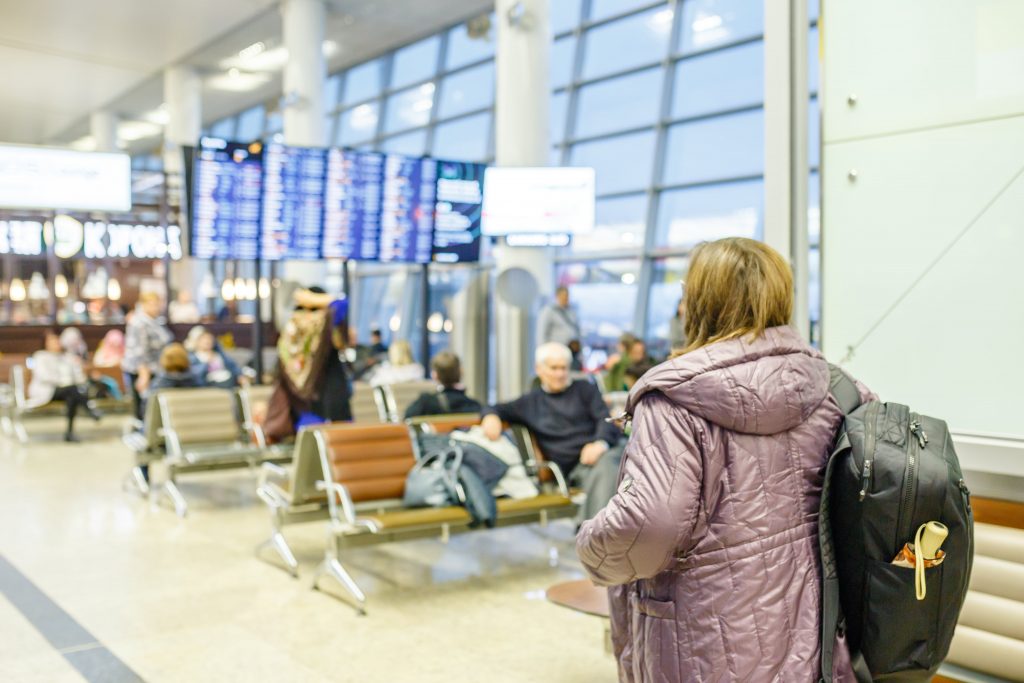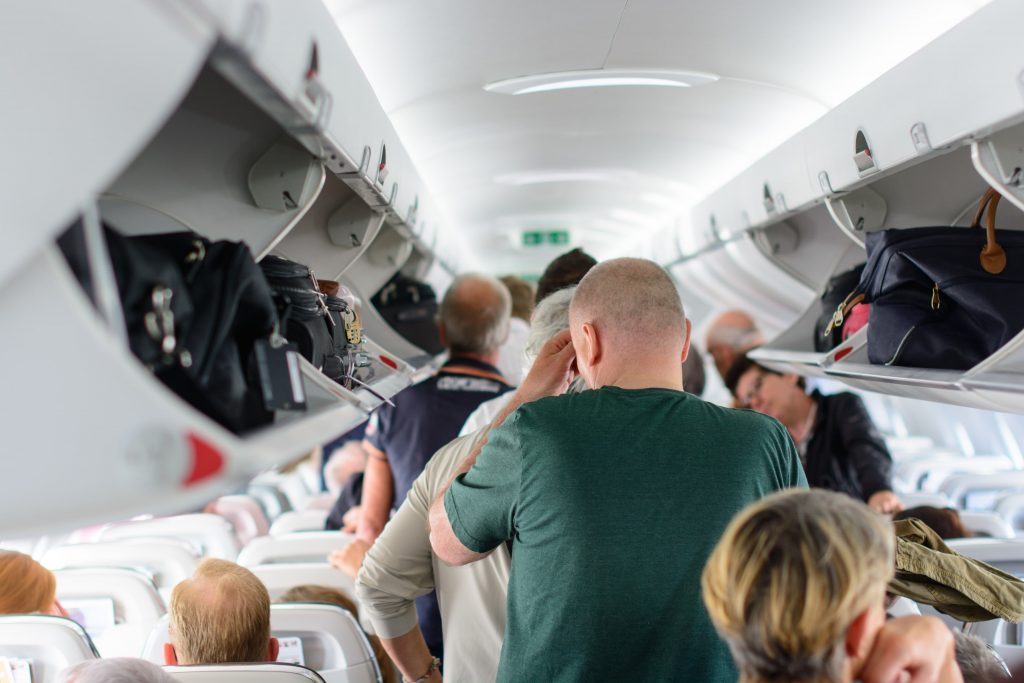Hidden disabilities in airports
Air travel is rarely an enjoyable experience. Long waits, crowded planes, queues and jet lag are sometimes unavoidable. But, for people with hidden disabilities, these things can become so much more challenging.
If you have a ‘hidden disability’, knowing what’s available at the airport can help to make a journey go more smoothly. Even if you don’t have any disabilities or medical conditions, it’s worth knowing how to accommodate the needs of other travellers.
How can hidden disabilities affect the airport experience?
There are so many hidden disabilities. Each person will face different challenges.
Someone with Crohn’s Disease might find it hard to stand and wait at the gate, knowing that they could need to get to a toilet very suddenly. Someone with Autism may find it difficult to be in the crowded queues and could find it easier to board the plane before everyone else rushes forward.
Someone with arthritis might find it hard to carry their luggage and could need assistance with bag storage. Someone who is partially sighted might need help finding the right gate for boarding, while someone with a learning disability may need the check-in process to be taken at their own pace.
These are just a few examples, but of course, every one of us is an individual and many more considerations than these must be taken by airlines to ensure passengers with different needs are catered for.

and therefore their needs must be catered for in an airport.
What kind of help is available?
Many UK airports are now taking part in the Sunflower Lanyard Scheme. People with hidden disabilities can wear the Sunflower Lanyard – a green lanyard with yellow sunflowers – to show that they might need assistance. Click here to learn more about the Sunflower Lanyard Scheme.
The lanyard was first used at Gatwick Airport but is now recognised at most of the UK’s airports as well as some overseas. Staff are trained to recognise the lanyard and do what they can to assist. They might invite someone to bypass a queue if it’s too challenging for them or could provide transport to the gate at boarding time.

trained to recognise the lanyard and do what they can to assist.
Photo Credit: ABC Action News
Some airports, like Belfast City, have guidance and videos online. These guides explain the airport process, with step-by-step information, to help people that need to prepare and might not know what to expect. At East Midlands Airport, you can pre-book a visit to see the airport and talk about your needs.
Gatwick Airport, the first to recognise the lanyard, now also has a sensory room. This calm and quiet room provides escape for those who need it, with interactive lights, sounds and textures. Manchester airport has a similar facility, named the Sunflower Room. Meanwhile, at Newcastle Airport, travellers can request a Hidden Disability Passport, that may provide the user with a fast track route through security.
Before you fly, you can contact any airport or check their website to see what they offer.
How can people plan ahead?
Most travellers with hidden disabilities don’t realise how much help is available. In some cases, assistance will need to be booked in advance. This ensures that there are staff available to help on the day and that your needs are understood.
Some airports might require you to download some forms, print them out and take them to the airport on the day. Others might welcome you for a familiarisation visit.
Whilst you may get assistance by asking on the day, this can put airport staff in difficult positions. Where possible, make contact in advance and make the airline aware of your needs.
On arrival, visiting the Special Assistance Desk – available at almost all airports – is the best way to talk to someone about your hidden disability. This is also where you’ll need to go to book a slot for a sensory room.

the airline in advance and make them aware of your needs.
What rights do travellers with hidden disabilities have?
Travellers with disabilities are protected by the Equality Act 2010.
Airlines must provide public information about their safety rules. These rules may state that a disabled person must be accompanied if they are unable to fasten their seatbelt or reach an emergency exit. Passengers may also need to be accompanied if they need help taking medication, using the toilet or eating. This may mean that you need someone else to travel with you but should not mean that you can be refused a seat on the plane.
Smaller planes may require a restriction on the number of disabled passengers, to ensure safety for everyone. You may be offered an alternative flight or directed to an airline with bigger planes. Bookings can only be refused if they would put safety at risk, due to the size of the aircraft or any safety rules being broken.
If you need to request additional assistance during your flight or time at the airport, then you should aim to book this at least 48 hours in advance. You can’t be charged extra for any additional assistance. Airports are responsible for ensuring that disabled travellers can get to their flight and must also provide accessible facilities including accessible toilets and induction loops as well as reserved seating.

accessible toilets.
You may need help getting to the toilet before or after your flight but will need someone with you to provide any additional assistance. Airport staff are not required to assist you inside toilet rooms or cubicles.
You may be asked to provide medical clearance, to check that you’re safe to fly and to ensure that you can bring any medications or equipment on board.
You have a right to a sensitive security search. If you have difficulty with physical contact, you should make security staff aware. The security checks are necessary but may be adapted to meet your needs.
Every member of airport staff should have disability awareness training. If you feel that you have not been treated respectfully and fairly, or have been discriminated against, you can complain to the airport. If their response is not satisfactory, you are then able to contact the Civil Aviation Authority (CAA).
Here at Fish Insurance, we’re proud to be working with travel experts AllClear Travel who cover hidden conditions such as; autism, depression and arthritis; we can help you find the right cover for your next trip. Click here for more information.

